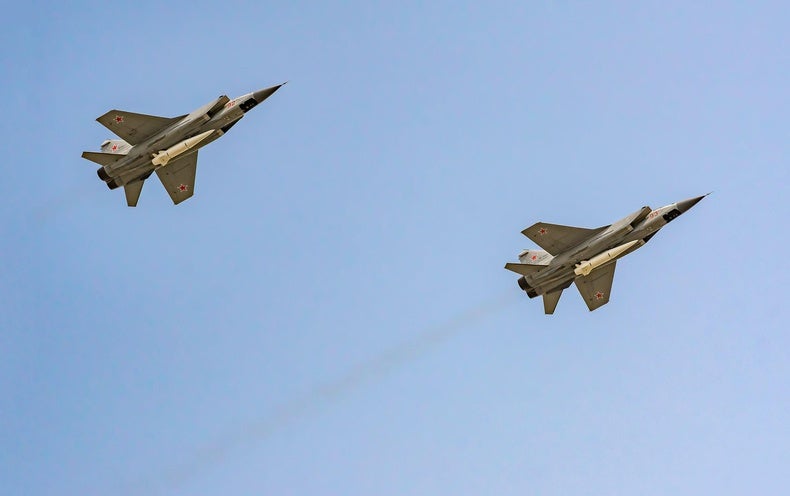The world’s military expenditure has nearly doubled since 2000. It now amounts to about $2 trillion per year, more than half of which is from NATO countries. Now, with the war raging in Ukraine, countries are rushing to increase their budgets even more; Germany, for instance, recently announced a roughly 30 percent increase of its military spending, with an additional €100 billion going into a special fund for its armed forces. The U.S. administration, in turn, is reportedly preparing a 2023 Pentagon budget of $773 billion, and Congress is likely to increase this number, just as it did last year.
Military spending increases may seem like a natural—even commendable—response to the Ukraine crisis. In reality, growing military budgets have persisted for decades despite macroeconomic or geopolitical trends. In 2020, for instance—the year 120 million people were pushed into poverty by a 4.4 percent recession and 98 million people were directly affected by storms, floods and other climate disasters—military expenditures continued to increase by an average of 2.6 percent worldwide.
Our house is burning, and instead of coming together to stanch the flames, we are busy building nuclear submarines, hypersonic missiles and other weapons of doom. The fruits of these exorbitant investments are not deterrence and peace; they are chaos and fear. In Einstein’s words, “You cannot simultaneously prevent and prepare for war.” Europe is now at war.
How can we explain the dizzying waste of resources into programs that do not increase security? The answer is the “tragedy of the commons.” How this self-defeating feedback loop plays out is like this: If my adversary increases its military expenditure, then I must also increase mine or accept a security cost, which forces my adversary to increase its expenditure even more. In the end, costs increase for all parties without any of them gaining the slightest competitive advantage; at the same time, humanity as a whole suffers from underinvestment in the areas that are truly essential to its survival.
We believe that a coordinated escape from the arms race tragedy is possible through international negotiations. Together with over 50 Nobel Prize winners and the president of major scientific institutions around the world, including former U.S. Secretary of Energy Steven Chu and Tawakkol Karman, the “Mother of the Revolution” in Yemen, we are calling upon all countries to reduce their military spending by 2 percent per year.
In 1989, former Defense Secretary Robert McNamara suggested that a 50 percent cut in Pentagon funding over five years would “enhance global stability, strengthen [U.S.] security and, at the same time, produce the resources to support a much-needed restructuring of the economy.” Today, with a more modest—but global—2 percent per year reduction in military spending, humanity would save over $1 trillion in just five years, compared to the spending that would result from current trends.
We propose that half of these savings remain at the disposal of national governments, which would undoubtedly find ways to use the funds for their domestic policies. Given the excellent research capacity of the military industry—and its outsized influence over defense policy—a meaningful use of these fresh resources could be to support the conversion of military R&D towards more productive uses. The other half should be allocated to a global fund dedicated to the fight against planetary emergencies such as pandemics, global warming and extreme poverty. Such structures already exist—e.g., the Global Environment Facility, the Climate Investment Funds or the Green Climate Fund—but their endowments are not enough, based on the challenges we face.
With that $1 trillion, at zero cost to states, humanity may finally be able to put up a serious fight against its real enemies. For comparison, the Global Fund to Fight AIDS, Tuberculosis and Malaria has saved an estimated 44 million lives with just 4 percent of this amount. Similarly, the (broken) “climate finance” pledge by rich countries to help developing nations mitigate the consequences of climate change amounts to just $100 billion per year; ending poverty globally might cost about the same amount. If countries agreed to reduce their military spending by 2 percent per year, these goals would all suddenly become within reach.
One might think that negotiations on such sensitive issues as military policy can never succeed, but recent history suggests otherwise. Since the 1980s, the United States and Russia have voluntarily reduced their nuclear stockpiles by 90 percent. Whatever their rivalries during the Cold War, strategic cooperation was in the interests of both countries, and it was that interest that prevailed. Now all diplomatic relations between the U.S. and Russia are moribund. Sooner rather than later, however, these two countries will need to return to the negotiating table to avoid catastrophe, together with all other nations of the world. In doing so, they will need to remember that you do not need to be friends to cooperate.
Limiting wasteful military spending is a legal obligation of states under Article 26 of the Charter of the United Nations:
“In order to promote the establishment and maintenance of international peace and security with the least diversion for armaments of the world ’s human and economic resources, the Security Council shall be responsible for formulating, with the assistance of the Military Staff Committee referred to in Article 47, plans to be submitted to the Members of the United Nations for the establishment of a system for the regulation of armaments.”
At a time when most commentators are applauding military budget hikes that will only compound humanity’s problems, we urge readers to stay out of the militaristic chorus. We encourage them, instead, to remind the permanent members of the United Nations Security Council—and their leaders, including Joe Biden, Boris Johnson, Emmanuel Macron, Vladimir Putin and Xi Jinping—of their legal and moral obligation to end the arms race through international cooperation. They can sign our petition at www.change.org/globalpeacedividend.
































